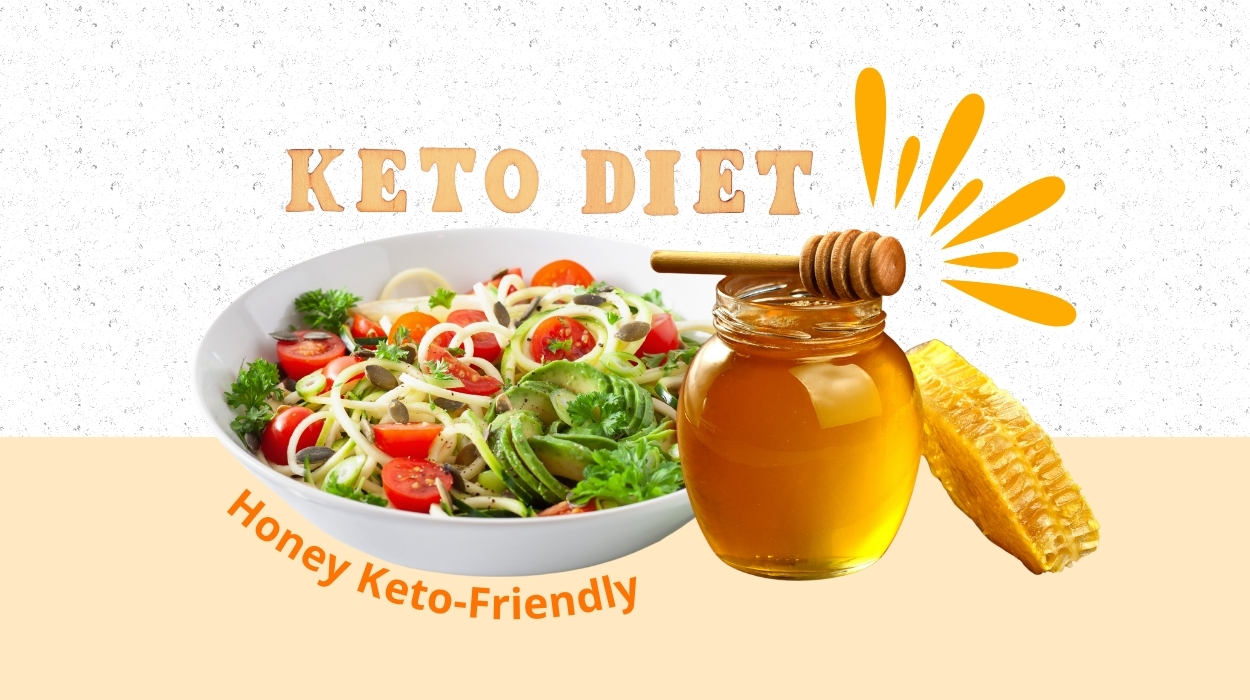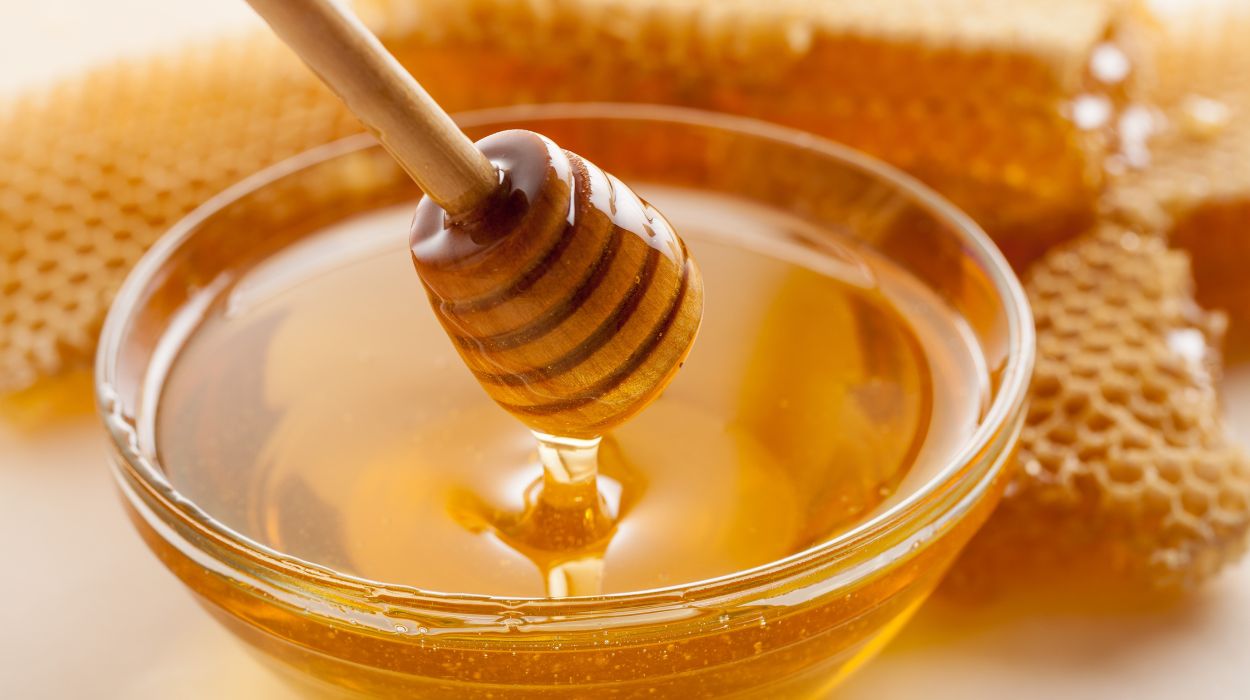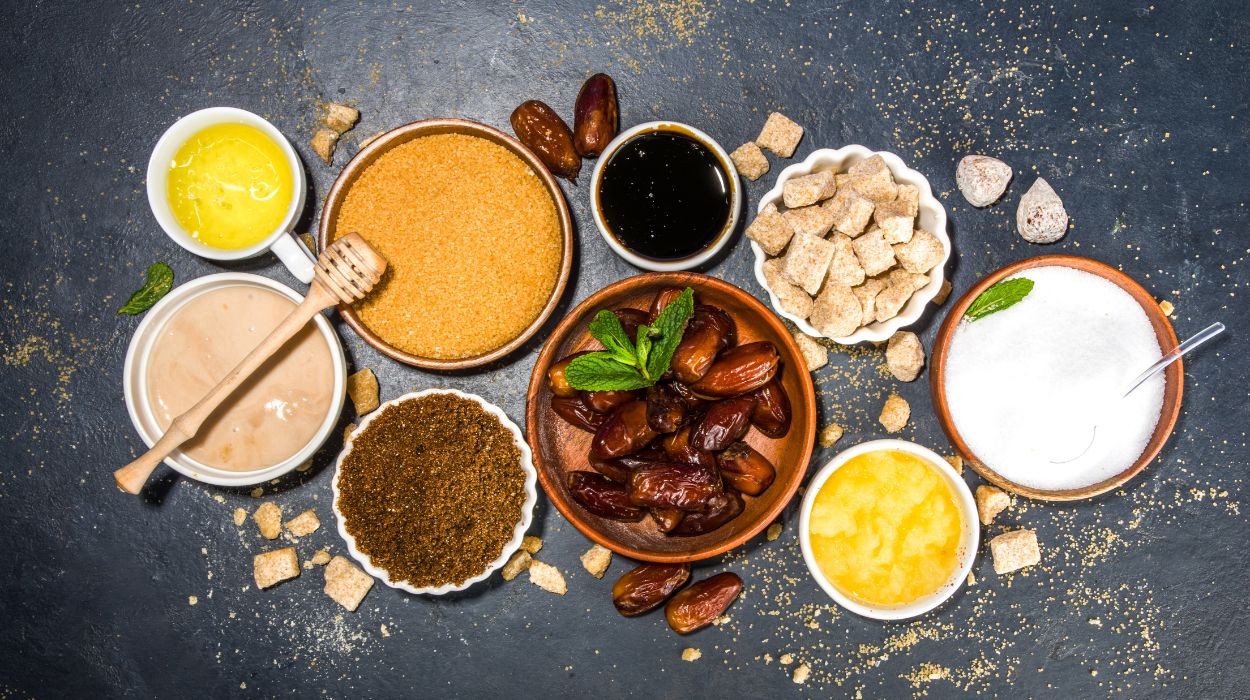 Expert's opinion
Expert's opinion
Expert's opinion
The article is a subjective view on this topic written by writers specializing in medical writing.
It may reflect on a personal journey surrounding struggles with an illness or medical condition, involve product comparisons, diet considerations, or other health-related opinions.
Although the view is entirely that of the writer, it is based on academic experiences and scientific research they have conducted; it is fact-checked by a team of degreed medical experts, and validated by sources attached to the article.
The numbers in parenthesis (1,2,3) will take you to clickable links to related scientific papers.
Is Honey Keto-Friendly? 2024 Suggestions For Honey On Keto Diet

The keto diet, short for the ketogenic diet, is a high-fat, moderate-protein, low-carbohydrate diet. Sugar is the simplest form of carbohydrates, therefore, sugar is to be avoided or restricted on a keto diet. This includes all forms of sugar, including honey.
Still, you may be wondering if honey is good for you, or is honey good for weight loss. Honey does have some medicinal properties and antioxidants, however, because it is restricted on a keto diet, it is helpful to look into alternatives, such as monk fruit benefits. Other ways to have a treat while on the keto diet include Quest keto bars and the best keto cereal.
Is Honey Keto?
Honey is molecularly and chemically similar to sugar, and is therefore typically avoided when on the keto diet. In order for the body to enter ketosis, where the body burns fat for fuel instead of carbs, one needs to essentially starve the body of carbs, including sugar, honey, and many similar sweeteners.
Can You Have Honey On Keto?

As sweet as honey is, it’s not so sweet for keto. Consuming honey, even in small amounts, can stop the body from entering or staying in ketosis (the metabolic state when the body burns fat instead of carbs/glucose for energy). Eating honey, especially in larger amounts can increase insulin levels and spike blood sugar which can interfere with ketosis. Insulin levels and blood sugar levels need to stay low and stable in order for ketosis to proceed, so it’s best to focus mainly on high-quality, healthy fats and protein if you’re planning to succeed on the keto diet.
Is Honey Healthy Or Not?
“Healthy” is a relative term. Generally speaking, honey offers more health benefits than regular table sugar, and certainly more than artificial sweeteners. However, honey is made of mostly fructose and some glucose, which are simple sugars. While a little bit of honey here and there won’t pose an issue, it’s best to not consume too much.
It’s true that honey has antimicrobial properties and some antioxidants (in fact, the darker the honey, the more nutritional benefits),[1] and not surprisingly, honey from rural locations[2] tends to be higher in antioxidants than honey from urban environments. However honey offers more in the way of a sweet treat than a healthy food (other foods contain just as much if not more antioxidants and have less sugar, like blueberries). In terms of the keto diet, having too much honey (and therefore, sugar) can interfere with ketosis, sabotaging the intended effects of the diet.
Honey Nutrition Facts You Should Know
Let’s look at honey more closely. One tablespoon[3] (20 grams) of raw honey contains:
- 61 calories
- 17 grams of carbs/sugar
- Small amounts of Riboflavin, copper, and other vitamins and minerals
- No protein, fat, or fiber
The Differences Between Honey And Sugar
Both honey and sugar offer sweetness to foods. They are both carbohydrates that break down into glucose and fructose and should be limited to a ketogenic diet. The fructose and glucose found in these sweeteners are digested quickly in the body, increase insulin, and cause a spike in blood sugar.
Sugar is made up of equal parts fructose and glucose, whereas the proportions are slightly different for honey: 40% fructose, 30% glucose, and the remaining 30% is made up of water, pollen, and minerals. Sugar comes from the cane sugar plant and is usually refined into a white or brown powder or granules, while honey is produced by bees and has a thick, gel-like consistency.
Types Of Keto Diets In Which You Can Eat Honey
- Targeted Keto Diet (TKD): This version of keto allows between 20-50 grams of extra carb intake, but only within one hour after a workout. This means you could have one tablespoon of honey either an hour before or an hour after a workout.
- Cyclical Keto Diet (CKD): This version of the keto diet allows you to take a few days “off” from the diet. Essentially, you’d follow a traditional keto diet of high-fat/low-carb for five days, then for two days you would do “carb backloading,” in which you replenish your glucose (stored as glycogen in the liver). This way of eating is typically reserved for athletes who need to increase their carb intake at specific times in order to perform better.
- Dirty Keto Diet: The dirty keto diet focuses only on the macronutrient proportions and not as much on the source of the foods. For example, as long as the keto dieters are keeping their carbs under 50 grams per day, it doesn’t matter where those carbs come from. In this case, since one tablespoon of honey contains about 17 grams of sugar, if the person consumed one tablespoon of honey and no other carbs for that day, it would still be compliant with keto.
5 Sweetener Alternatives You Can Try

There’s no need to fret if you have a sweet tooth but want to try keto. Some sweeteners are permitted on the keto diet. Let’s look at some of them:
Monk Fruit
Its natural sweetener comes from monk fruit, a fruit grown in China. Monk fruit[4] can be between 100-200 times sweeter than table sugar but without any of the calories or carbs. This makes it a perfect honey substitute for the keto diet.
Erythritol
It is not a sugar, per serving, but a sugar alcohol,[5] which are compound that can replicate the sweet taste of sugar and stimulate sweet taste buds, similar to how sugar does. Erythritol may be almost as sweet as table sugar but has about 5% of the calories. There are considerably fewer carbs in erythritol compared with sugar and honey, so this, too, makes it ideal for keto.
Stevia
Stevia comes from the Stevia rebaudiana plant, containing either very little or no calories[6] or carbs. Unlike honey which spikes blood sugar, studies have shown that stevia has the opposite effect (it can lower blood sugar), making it acceptable to consume on a keto diet.
Sucralose
Sucralose is an artificial sweetener, which means it’s not as healthy as natural sugars. However, it serves as a suitable sweetener on a keto diet. Sucralose doesn’t get metabolized in the body, so the body does not take on any calories or carbs from the sweetener. The most common brand name of sucralose sweeteners is Splenda (the sucralose itself does not contain any calories or carbs, however, Splenda does contain a few of each).
Xylitol
It is sugar alcohol that interacts with our taste buds similar to sugar and honey, but has different effects on the body. Xylitol is usually found in candies, mints, and chewing gum. You can expect the same level of sweetness, but only 3 calories and 4 grams of carbs in every teaspoon.
Artificial Sweeteners On Keto That Should Be Avoided
There are very few sweeteners that are keto-approved, aside from the ones mentioned above (a few sugar alcohols, monk fruit, stevia, etc.). Most other sweeteners, including artificial sweeteners, should be avoided, not only because they are high in carbs, but because they may pose health risks that outweigh the benefits of being on a keto diet.
The sweeteners that should be avoided include aspartame (a controversial sweetener commonly found in diet sodas which has been linked with many health conditions, including cancer[7]) and maltodextrin, not only because it can spike blood sugar, but because it may also pose health consequences.
Even naturally-occurring sugars from dates, coconuts, maple syrup, agave, and of course, honey, should be avoided or limited. Even though they come from natural sources, the high sugar content makes them unsuitable for ketosis.
Conclusion
Honey is a sweet, delicious, natural byproduct of bees, that can be enjoyed on cereal, in tea, or on its own, however, is not ideal on a ketogenic diet. This is due largely to its high sugar content. When on a keto diet, it’s essential to keep carbs low, roughly 10% of your daily diet, or under 50 grams per day. If you really keep your portions of honey small (one teaspoon a day), it is unlikely to interfere with ketosis, however, it is still best to avoid it. Instead of honey, consider other sweet options that will taste just as good, but with fewer carbs and calories.
+ 7 sources
Health Canal avoids using tertiary references. We have strict sourcing guidelines and rely on peer-reviewed studies, academic researches from medical associations and institutions. To ensure the accuracy of articles in Health Canal, you can read more about the editorial process here
- Cianciosi, D., Forbes‐Hernández, T.Y., Sadia Afrin, Gasparrini, M., Reboredo‐Rodríguez, P., Piera Pia Manna, Zhang, J., Leire Bravo Lamas, Susana Martínez Flórez, Pablo Agudo Toyos, Quiles, J.L. and Giampieri, F. (2018). Phenolic Compounds in Honey and Their Associated Health Benefits: A Review. Molecules, [online] 23(9), pp.2322–2322. doi:https://doi.org/10.3390/molecules23092322.
- Nicewicz, A.W., Nicewicz, Ł. and Patrycja Pawłowska (2021). Antioxidant capacity of honey from the urban apiary: a comparison with honey from the rural apiary. Scientific Reports, [online] 11(1). doi:https://doi.org/10.1038/s41598-021-89178-4.
- Tsuruda, J.M., Chakrabarti, P. and Ramesh Sagili (2021). Honey Bee Nutrition. Veterinary Clinics of North America: Food Animal Practice, [online] 37(3), pp.505–519. doi:https://doi.org/10.1016/j.cvfa.2021.06.006.
- Sachin Bhusari, Rodríguez, C.E., Tarka, S.M., Kwok, D., Pugh, G., Gujral, J. and Tonucci, D. (2021). Comparative In vitro metabolism of purified mogrosides derived from monk fruit extracts. Regulatory Toxicology and Pharmacology, [online] 120, pp.104856–104856. doi:https://doi.org/10.1016/j.yrtph.2020.104856.
- K. Regnat, Mach, R.L. and Mach-Aigner, A.R. (2017). Erythritol as sweetener—wherefrom and whereto? Applied Microbiology and Biotechnology, [online] 102(2), pp.587–595. doi:https://doi.org/10.1007/s00253-017-8654-1.
- Arumugam, B., Subramaniam, A. and Praveena Alagaraj (2020). Stevia as a Natural Sweetener: A Review. Cardiovascular and Hematological Agents in Medicinal Chemistry, [online] 18(2), pp.94–103. doi:https://doi.org/10.2174/1871525718666200207105436.
- Landrigan, P.J. and Straif, K. (2021). Aspartame and cancer – new evidence for causation. Environmental Health, [online] 20(1). doi:https://doi.org/10.1186/s12940-021-00725-y.



